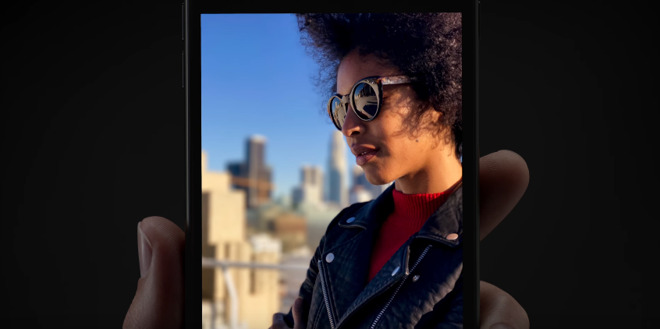Apple exec admits Qualcomm was the only option for 4G in the iPhone for years
Potentially aiding Qualcomm's trial defense against the U.S. Federal Trade Commission, Apple has admitted that for years, there was no other realistic option but Qualcomm when it wanted 4G modems for iPhones.

While the company considered alternatives like Broadcom, Ericsson, and Intel as far back as 2012, none of them could meet specifications, Apple's director of cellular systems architecture Matthias Sauer said in testimony on Jan. 18, as reported by Bloomberg. The company relied on Qualcomm 4G modems until 2016's iPhone 7.
Apple did consider using Intel for a 2014 iPad, Sauer added, but skipped the idea out of business reasons and a decision that it didn't need the specifications it had been looking for, such as carrier aggregation.
The FTC's lawsuit accuses Qualcomm of antitrust violations by forcing chip buyers to sign patent licenses at inflated rates. The Commission rested its case last week.
Qualcomm has defended its practices by a number of means, for example pointing to the high cost of innovation. Apple though has called the chipmaker's demands "onerous," at one point asking Apple to cross-license all its intellectual property to get a direct license for standards-essential patents, something Apple decided to skip.
COO Jeff Williams recently revealed that Apple wanted to return to a mix of Intel and Qualcomm modems for 2018 iPhones, but was shot down by Qualcomm CEO Steve Mollenkopf. The two companies have been engaged in a global legal war since 2017, instigated by Apple, which sued over nearly $1 billion in rebates allegedly withheld as retaliation for cooperation with antitrust investigators.

While the company considered alternatives like Broadcom, Ericsson, and Intel as far back as 2012, none of them could meet specifications, Apple's director of cellular systems architecture Matthias Sauer said in testimony on Jan. 18, as reported by Bloomberg. The company relied on Qualcomm 4G modems until 2016's iPhone 7.
Apple did consider using Intel for a 2014 iPad, Sauer added, but skipped the idea out of business reasons and a decision that it didn't need the specifications it had been looking for, such as carrier aggregation.
The FTC's lawsuit accuses Qualcomm of antitrust violations by forcing chip buyers to sign patent licenses at inflated rates. The Commission rested its case last week.
Qualcomm has defended its practices by a number of means, for example pointing to the high cost of innovation. Apple though has called the chipmaker's demands "onerous," at one point asking Apple to cross-license all its intellectual property to get a direct license for standards-essential patents, something Apple decided to skip.
COO Jeff Williams recently revealed that Apple wanted to return to a mix of Intel and Qualcomm modems for 2018 iPhones, but was shot down by Qualcomm CEO Steve Mollenkopf. The two companies have been engaged in a global legal war since 2017, instigated by Apple, which sued over nearly $1 billion in rebates allegedly withheld as retaliation for cooperation with antitrust investigators.

Comments
For one thing, part of what the FTC is arguing is that other would-be modem suppliers not being competitive was a result of Qualcomm's anticompetitive conduct. There are reasons why they couldn't yet meet Apple's specs. And even if some of the reasons had nothing to do Qualcomm's (prior or current) conduct, some of them had to do with that conduct. Had Qualcomm not engaged in its allegedly anticompetitive course of conduct, other modem suppliers would have been ready to supply the likes of Apple sooner.
Yes, but the FTC wouldn't otherwise have any trouble demonstrating that Qualcomm (for some time) had monopoly power.
There are, simplified a bit, two elements to a Sherman Act §2 violation: (1) monopoly power and (2) anticompetitive conduct. When it comes to the first element, it doesn't really matter why an alleged monopolizer has monopoly power. It matters that they do have monopoly power. So this "admission" supports the conclusion that Qualcomm had monopoly power, but that's something that was already easy for the FTC to demonstrate. The second element is a bit more complicated. But I think the FTC is able to demonstrate that as well, and do so in a number of ways such that some will remain even if others are successfully challenged by Qualcomm.
At this point, Qualcomm's best defense may effectively be... Yeah, but we don't have the power to do those things anymore. Its best hope may be that Judge Koh concludes that it no longer has the monopoly power, or otherwise the leverage, it would need to successfully engage in the anticompetitive conduct it used to engage in.
(I only refer to Sherman Act §2 in this context because a violation of Sherman Act §1 doesn't require a demonstration that the accused had monopoly power.)